In 2018, 30 years after graduating from New York City’s Dewitt Clinton High School, Andrea Navedo, widely known for her role as Xiomara “Xo” Villanueva in the CW’s American telenovela, Jane the Virgin, was invited to give the commencement speech at her alma mater.
As someone who graduated from high school in five years instead of four, which, despite feeling shame in the past she now shares proudly, Navedo wanted to cultivate a speech that the students would relate to.
Minimizing the distance between the students and herself, the actress didn’t want them to feel that, although she was in a different, better place than she might’ve been at their age, reaching that point, regardless of what they wanted to do, wasn’t impossible. Sharing bits of her life and wisdom was just how she did connected with them.
“One student came up to me with tears in her eyes, and she said, ‘Thank you so much for sharing your stories, especially about it taking five years to graduate high school. I’m graduating today and it took me five years. It didn’t stop you from living your dreams,’” Navedo said. “That meant so much for me to hear.”
Five years later, on July 18, Navedo’s first-ever book, Our Otherness is Our Strength: Wisdom From the Boogie Down Bronx, available for purchase on Amazon, Broadleaf Books, Bookshop.org and at Barnes and Noble, will feature those stories from her speech and more. The first-time author shares bits of her Bronx, New York childhood, family memories and the triumphs and challenges of her acting career.
CALÓ NEWS sat down with Navedo to discuss her first experience as an author, her time on the CW’s Jane the Virgin and finding strength in one’s otherness.
ANDREA NAVEDO, 53, CONNECTICUT, ACTRESS/WRITER, SHE/HER, LATINA

Andrea Navedo, best known for her role as Xiomara, “Xo,” Villanueva on the CW’s American Telenovela, Jane the Virgin, releases her first-ever book, Our Otherness is Our Strength: Wisdom From the Boogie Down Bronx, on July 18. Credit to Manfred Baumann.
YOUR BOOK, OUR OTHERNESS IS OUR STRENGTH: WISDOM FROM THE BOOGIE DOWN BRONX, IS YOUR FIRST-EVER BOOK, COMING OUT JULY 18. CAN YOU TELL US WHAT THE BOOK IS ABOUT AND WHEN YOU FIRST THOUGHT ABOUT BECOMING AN AUTHOR?
When I was eight years old, I thought about writing a book. I would look around and my family and see all these events happening, I would say to myself, ‘I’m gonna write about this someday.’ Then, I forgot about it and I didn’t think about it again until I was on Jane the Virgin and I saw the positive impact that the show was having on, in particular, the young female audience. And then when I got invited to give the commencement speech at Dewitt Clinton, I saw the positive impact that the speech had. For example, the girl who was graduating after five years, and I thought to myself, ‘I only made an impact, hopefully, on these people. Only 300 people were exposed to my stories, and I would like to expose more people to these stories.’ But I had to get past my own mental hurdles on whether or not I could do it. When I was on Jane, I put it on the back burner. And then Jane finished, and I ended up getting a divorce, which was the hardest thing that I ever did in my entire life. Once I came out of the divorce, I was a new person in a way. I had turned 50 the year before and I said, ‘I’m looking at less than half of my life. I don’t know that I’ll get to live to be 100 years old like my grandmother. I don’t want to go to my grave with my song unsung.’
In 2021, I got so frustrated with this insecurity of feeling like I wasn’t going to do it. I reached out to a good friend, Sonia White. She has an incredible network and she said she mentioned Adrienne Ingrum, [editor]. I was ready to pay a lot of money for a writing coach. I was like, ‘I need accountability.’ Because I knew if I tried to do it by myself, I was gonna drop the ball. Life was gonna take over, I’m gonna get busy with my kids or whatever, and it won’t happen. I’m going to be kicking myself that I didn’t do it, which is a terrible feeling. I had a Zoom call with [Ingrum] and I pitched her another book idea. And she said, ‘I like that, but I also saw your commencement speech. I think you have another book in you.’ Long story short, after three rounds of pitches over about a month’s time, [Broadleaf Books] came back to me with a two-book publishing deal. I was so amazed. And I got a writing coach, which was Adrienne, my editor. We would meet for over a year, every week on Zoom. I would have homework and an assignment for the week, and then I’d have to do that work, send it to her before we met the next following week, then she’d give me notes. It just kept going like that. It was freaking awesome, but it was hard. At times, sometimes I didn’t know what to write, I would hit a block. And I said, ‘I’m not going to put that pressure on myself to deliver,’ because you can’t do that as an actor either. You either have it or you don’t. I knew that, so I said, ‘What I can do is show up in front of my computer, I can set the stage for the performance to happen. And if it comes, it comes and if it doesn’t, it doesn’t. I’m not going to beat myself up about it.’ I would go to coffee shops most of the time, sometimes we went to libraries, and I would just prime myself. If I typed a paragraph, great, and if I don’t have anything else, great. Sometimes, a whole bunch of stuff would come out after that.
YOU WERE RAISED NOT TO SPEAK SPANISH AND LEARNED THE LANGUAGE LATER ON IN YOUR LIFE. HOW DID NOT SPEAKING THE LANGUAGE WHEN YOU WERE YOUNG AFFECT YOUR SENSE OF CULTURAL IDENTITY, AND WHAT WAS IT LIKE LEARNING IT AFTER SO LONG OF NOT SPEAKING IT?
Well, this should have been another chapter in the book, but when I was 11, the same story that I tell about the [harvesting] coffee when I was 11, and I went to meet ‘my people.’ I met aunts that I didn’t know, but meeting them for the first time and they start talking to me in Spanish, I was just blank. I didn’t understand it. But I did pick up on what they said, and I know what they said now. ‘It’s such a shame that she doesn’t speak Spanish, right?’ I was so embarrassed and I felt rejected in a way, right? It was so impactful to me that, at that moment, I decided that I was going to learn Spanish. When I was in high school, I took some Spanish classes. And then in college, I took Spanish, but when they teach Spanish in school, that’s not how people learn a language. You do not learn a language with a textbook, that’s not how language is learned. Only reading and writing are learned that way. When I graduated from college, I had gotten into some money, so I said, ‘Before I go out and pursue my career, I know I’m going to need to speak Spanish. As an actor, it’s going to help me, especially with this face.’ I went away for three months to a Spanish school in Mexico. I lived with a Mexican family and I went to school Monday through Friday for five hours. Just pure Spanish. The family that I lived with did not speak English and I learned a ton of Spanish that way. Then, when I came back, I enrolled in a school that teaches Spanish in Manhattan. It’s a non-profit arts organization. One of the ways they supplemented themselves was by teaching Spanish and the guy who ran it was Argentinian. I was in his class. And he said, ‘You don’t learn Spanish from a book, you learn it by listening and repeating.’ That’s how he taught us. There was no textbook, there was no workbook, there was nothing. He would speak to us, we’d have to listen and then we’d repeat what he said. I learned a ton that way. After that, I went to Cuba for a month and I learned a lot there. I’ve also had a cleaning woman from Colombia for 10 years, and I’ve learned a ton of Spanish from her.
You have to be in the culture, you have to be immersed. But also, I wanted to learn Spanish besides for the benefit of my career, I just wanted to claim my own identity as a Latina. And it’s really hard if you don’t speak Spanish, you feel like you don’t belong, right? That was sort of my way of taking the reins of my own identity and owning it. Saying, ‘This is mine, I’m going to do it.’ And I enjoy speaking Spanish when I do. It’s still full of grammatical errors. And there are a lot of words I don’t know. But I got to the point where I can feel comfortable enough to hold a decent conversation.
IN CHAPTER 18 OF YOUR BOOK, YOU TALK ABOUT AUDITIONING FOR THE “GIRL-NEXT-DOOR” CHARACTER, BUT IT ENDED UP BEING A STEREOTYPICAL LATINA CHARACTER IN THE SOAP OPERA, ONE LIFE TO LIVE. CAN YOU TALK ABOUT WHAT YOU WERE FEELING IN THAT MOMENT WHEN YOU REALIZED YOU WERE WRONG ABOUT THE ROLE AND THE EMOTIONS YOU FELT WHEN DECIDING WHETHER OR NOT TO TAKE IT?
When I realized that it wasn’t the ‘Girl-Next-Door’ role that was on the audition scenes that they had given me and it was a girlfriend of a gang leader, I just felt so heartbroken. I was so disappointed and so sad because I felt like this was all that they thought I was good for. That I wasn’t good enough to play the girl next door. I would only be seen in these lights, these stereotypical lights. But at the same time, I was torn because I really wanted the opportunity. I wanted to work. I wanted to make some money. I wanted to get my foot in the door. But at the same time, I wanted to represent my people and take a stand and say “No.” But I’m glad I didn’t because, as I mention in the book, it was a stepping stone.
And for a long time after that, even after it was over, I questioned myself if I was a sell-out. Did I sell myself out on One Life to Live? Or sell my people out? I realized when I was writing the book that I didn’t. Because when I was writing the book, I was doing a lot of reflection on my life and how it had played out and I realized that, no, I did not sell myself out. I set myself up to get to Jane the Virgin, which was what I had always wanted to begin with.
YOU’VE SPOKEN ABOUT THE MONTH YOU ALMOST QUIT ACTING, WHICH WAS RIGHT BEFORE BEING CAST AS XIOMARA IN JANE THE VIRGIN. CAN YOU TALK ABOUT WHY YOU CONSIDERED QUITTING AND WHEN YOU DECIDED NOT TO?
There’s some sort of saying that says ‘It’s always darkest before the dawn.’ And that was true. A lot of times when things seem the worst like it’s never gonna work out, it’s just around the corner. That’s what I used to say to myself in the times when I would want to give up. I did quit that month. But there were other times when I just wanted to say, ‘This acting thing is not working, I need to do something else.’ Then I’d go, ‘No, it’s right around the corner. It’s right around the corner. It’s there. Just gotta keep going. Just gotta keep going. Hunker down.’
I had gotten married and had kids and my children were young, and I wanted to raise them. I didn’t want a full-time babysitter or a nanny or anything like that. Not that I really had the money. But still, I wanted to be home, I felt such a sense of responsibility when I had my children, they were so young and so vulnerable. And I really wanted to put my imprint on them and set them on a good trajectory. I wanted them to feel safe and loved and all of that stuff. I got very caught up in being a mom and being at home to the point where I would get auditions from my agents and if it was shooting out of town, if it was shooting in LA, ‘Nope, I can’t do it. I gotta stay home, I gotta stay home.’ I just really lost touch with acting. Eventually, my agents dropped me. And it was a huge wake-up call, but not right away because I went into a depression. Because I had a lot of pride in being an actress in the sense that it’s an unconventional job, you don’t meet many people that do it. It takes a lot of balls to decide that that’s what you’re going to do with your life, so I had a lot of pride in myself that I was brave enough to tackle a very challenging career. Then, all of a sudden, to not be an actress, to be dropped by my agents, I was like, ‘Who am I? If I’m not just a mom?’ There’s nothing wrong with being just a mom if that’s what you want and if that’s what’s important to you. But I wasn’t just a mom. Being an actor was my dream for so long before I had children. I had my daughter at 35 and my son at 37. I’d been pursuing my career since I was 18 years old. It was really, really hard and I went into this depression. But, a month later, thank God, a friend of mine who was an aspiring director called me with a play and asked me if I would do it. And at first, I didn’t think I could because there was nudity in it. Plus, I wasn’t an actor anymore, I had quit. He said to me, ‘You can’t quit, Andrea. You’re so good. You can’t quit.’
Eventually, I got my agents back and got myself back on track and I realized that the reason why I lost my passion, and I think the reason why anyone loses passion with whatever they’re trying to achieve, is because they stop watering it. They stop watering their proverbial plant, and the plant starts to die. They stop paying attention to it. I also had this mental block about LA for the longest time. When I first met my ex-husband in 1997, I decided to go out to LA at that same time. I did end up going to LA for three months for pilot season. It was very isolating and very lonely out there. And I wasn’t getting auditions as I thought. I just naively went out there and thought I was going to find an agent so quickly. It just didn’t work out, so I came back feeling like a failure. After that, I had this mental block about LA. I was afraid to do it again. But eventually, I just knew I had to dance a different dance because I wasn’t getting the results that I wanted during pilot season in New York.
I had gotten a new manager and he was a big-time agent turned manager. He had a lot of big clients like Sharon Stone and Laurence Fishburne, Katherine Heigl. He kept telling me to go and I knew he was right. I knew I had to go. And the reason why I knew I had to go is because I knew I was holding myself back. I was holding myself back out of fear. Had I not gone on that plane gene, I would never have gotten Jane the Virgin. I don’t think I would have booked Jane the Virgin from a self-tape in New York. I booked Jane the Virgin because I was there in person. I think also I booked it because I took a bet on myself. I went in spite of my fear. And I said I’m putting money on Andrea Navedo. I’m going to put money on this plane, on this place to stay, I’m gonna leave my family for a whole month with nothing, with no proof that I’m ever going to come back with anything, I’m gonna take a chance. I did not have any confidence that I would book something but I didn’t lack confidence that it wouldn’t happen. I was neutral. It was a cool place to be in, a neutral state. I wasn’t hoping for it. I mean, of course, I was hoping on some level. But it wasn’t like I had to book something. I just knew I had to go and let the rest play itself out. And so, I already won, just by getting on that plane. I was like, ‘Well, I accomplished my mission.’ I made myself go and it’s amazing that one decision changed my life. It changed my life in such a huge, huge way. Jane the Virgin was a huge time in my life and had a such a wonderful, great impact on my life. It’s still playing itself out now. I don’t think I would have written a book if it wasn’t for Jane the Virgin.
IN THE LATINO COMMUNITY, PUTTING YOUR FAMILY FIRST AND YOURSELF SECOND IS COMMON KNOWLEDGE. HOW DID YOU DEAL WITH WANTING TO GO TO LOS ANGELES FOR PILOT SEASON, BUT FEELING GUILTY FOR LEAVING?
I had the guilt before I left, which was why I was holding myself back. Which was why I was hesitating. It was almost like standing at the edge of a cliff and going to jump. And you’re just like, ‘I don’t know what’s down there, I don’t know what’s on the other side, I can’t see, it’s dark down there.’ I looked back and everything that I knew was familiar, but there was something telling me to jump. There’s something else on the other side, I just don’t know what it is. And it’s scary to take that leap and leave the people that you love behind. So I felt guilty up until I made the decision. Once I made the decision, I no longer felt guilty. I really believe in leading by example, or teaching through example, because so many parents can preach to their children, ‘Oh, you should do this, you should do that.’ But they’re not doing it themselves. If we expect our children to take risks and try new things, but we’re not showing that we do that too, then you can’t expect your child to be any different, right? So my thing was, I wanted my kids to see me doing something hard. I wanted my kids to see me doing something that scares the shit out of me and doing it anyway. I want them to be inspired by me. That’s the best way to teach. And it was the same thing with the book. They saw me for over a year going, ‘I’m going to the coffee shop! Bye, guys!’ Now, them being able to see the physical book, my son goes, ‘Man, Mom, that’s so cool. You wrote a book.’ That means so much to me, right? So, so much to me. When he saw the dedication, he was like, ‘Aw, that’s so cool.’ I think the seeds have been planted by just me going to do things that scare me.
YOU’VE TALKED ABOUT NOT SEEING POSITIVE PORTRAYALS OF LATINAS IN MEDIA GROWING UP AND HOW THAT HAD A HAND IN NOT TELLING ANYONE YOUR DREAM OF ACTING. HOW DID THE LACK OF REPRESENTATION AFFECT YOU GROWING UP AND HOW DOES IT FEEL TO BE PART OF HUGE REPRESENTATION FOR LATINAS?
The lack of seeing myself reflected in media made me feel undervalued, made me feel less than and made me feel invisible. Because, to me, the people who are in power are the ones in the media, the ones who are in charge. This is a childlike way of seeing the world, but I was a child and I didn’t have a lot of frame of reference. I just didn’t feel like my people were important enough to be on TV and film. That meant that I wasn’t important. I was keenly aware that I was the ‘other’ and that’s where the title comes from. Knowing that I was not part of the mainstream, I was the ‘other’ and the ‘others were always deemed as outcasts or dangerous or foreign, always on the lower end of the economic spectrum. I was always aware that I was the ‘other,’ but there was a part of me that just knew that I had a lot of value in spite of all my insecurities, in spite of all the negative messages I’ve gotten in my life. There was a part of me that wanted to fight for me, fight for my value, to be seen and heard, loved and understood. That was the driving thing. To this day, I still experience it, and that’s why, when I decided to become an actress, I knew the odds were stacked against me. That I wouldn’t be successful because I wasn’t part of the mainstream, but I was going to keep showing up anyway. I was going to keep forging ahead and keep chipping away and staking my claim. Eventually, I, along with a whole bunch of other people who felt the same way, were like, ‘F*** no, we’re gonna keep showing up, we’re gonna keep making noise and we’re gonna keep saying we count.’ It’s still happening and I think all of it has added up to one big wake-up call for Hollywood to say, ‘Yo, what are you doing? Wake the f*** up. There is so much untapped talent here, which means untapped dollars here.’ It’s just so awesome to be part of the history in the making. Of being part of creating change in a positive way.
THERE’S AN EXCERPT FROM YOUR BOOK:
“I see the value in ‘not having’ that my Bronx girlhood created because I can now show up victoriously to tell the story and help put our people on the map. I look at my ninety-nine-year-old grandmother, my mother, and my aunts and know that some of their history and what they have had to endure is finally being shared in Jane the Virgin and other tv shows and films. They are finally getting to see themselves reflected in an honorable and beautiful light and I have the privilege of being able to deliver that gift to them.”
WHAT WERE THEIR REACTIONS TO YOU GETTING THE PART IN JANE THE VIRGIN, AND HOW DOES IT MAKE YOU FEEL KNOWING YOU ARE PART OF A SHOW THAT IS FINALLY REPRESENTING YOUR FAMILY?
In the beginning, they were just amazed that the main cast was Latino. They had never seen anything like that. They were so proud and so excited. Every week, I’d get a text from my mom going, ‘Oh my God, when this happened, that was so good.’ They had never been as involved in my career up until Jane the Virgin. It was pretty awesome. And then to be out in public with them, and they would see how I’d get recognized or people would want to take pictures with me, they just couldn’t believe it. For them to see these beautiful Latinos and this beautiful family, it meant so much to them to feel like they existed. That they arrived in some way. For me, it made the tough journey worth it. All of the hurdles that I’ve gone through, quitting acting and losing my passion, the times when I wasn’t making money or the One Life to Live girlfriend of a gang leader fiasco. I took one for the team, that’s how I look at it. One Life to Live, I took that job and I took one for the team because that helped set the stage for a show like Jane the Virgin to happen.
WHAT WAS THE EXPERIENCE LIKE WRITING YOUR FIRST BOOK? DID WRITING THE BOOK PROVE TO BE A CATHARTIC PROCESS? WAS IT HEALING?
Writing the book, on some level, was cathartic because it helped me to realize how far I had come. Because it was taking time to reflect back to where I was, I had to go back in my memory and live in it as a little girl, as a teenager and as I started to pursue my career. The reflection helped me to realize, one, how far I had come, and two, how strong I was. Realizing that ‘Oh, my God, what I thought were strikes against me were actually helping me.’ Being a brown Latina from the hood was actually a perfect setup for me to be strong enough to be able to take on a tough career such as acting.
The other thing was that I was going through a divorce at the time, and it was a very hard thing for me. It was very sad, because we’d been together for 23 years, and it was my choice. I was uprooting my family and my children, and it was very hard. So, having the coffee shop to go to and then just delving into my memories and writing, was a two to three-hour escape from the reality of what I was going through at the time that I was writing the book.
IS IT IMPORTANT TO YOU TO SHOW YOUNG LATINAS, ASPIRING ACTORS OR NOT, THAT, REGARDLESS OF THE OBSTACLES PUT IN FRONT OF THEM, IT IS VERY MUCH POSSIBLE FOR THEM TO FOLLOW THEIR DREAMS? WHAT ADVICE MIGHT YOU HAVE FOR THEM AND FOR THOSE WHO FORGET THAT THEIR OTHERNESS IS THEIR STRENGTH?
Of course, it’s important to me and that’s one of the reasons why I wrote this book. As I say, not only do I lead by example with my children, I like to lead by example with anyone who comes across my path. I like to share my stories to help people see the potential in themselves, to help them see that our potential obstacles are really just something we have to get around. I also am a strong believer in a growth mindset. That’s what I like to demonstrate in my life. If I don’t like something, if I don’t like where I am or what’s happening, or if I want or need something, I might be frustrated with it. Might take me some time. But eventually, I will hunker down and do something I will take action to make a change for the better. My life is a reflection of that. And just right down from failing high school to becoming an honor student to becoming an actor. This was a decision that I made. I talk about my dad having been an ex-convict and how he became a productive person in society and was a huge influence on me artistically, educationally and culturally. He was not a throwaway. He was a person who made a mistake and then he changed his mind and went in a different direction.
I believe that anyone who’s aspiring to go for their dreams, they’re going to have hurdles. A lot of the hurdles are going to be in their own minds, but you can do something about it. You can do something about your mind. It can be overwhelming sometimes, but you can do something about it. You can go to therapy, you can exercise, you can journal and you can talk to a trusted friend.

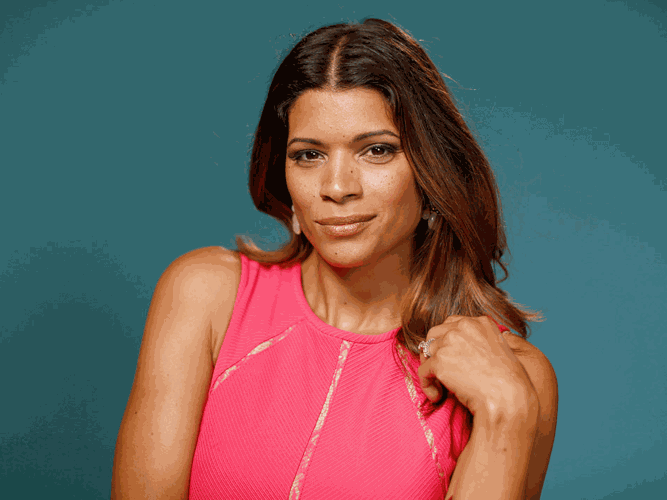
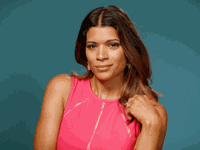
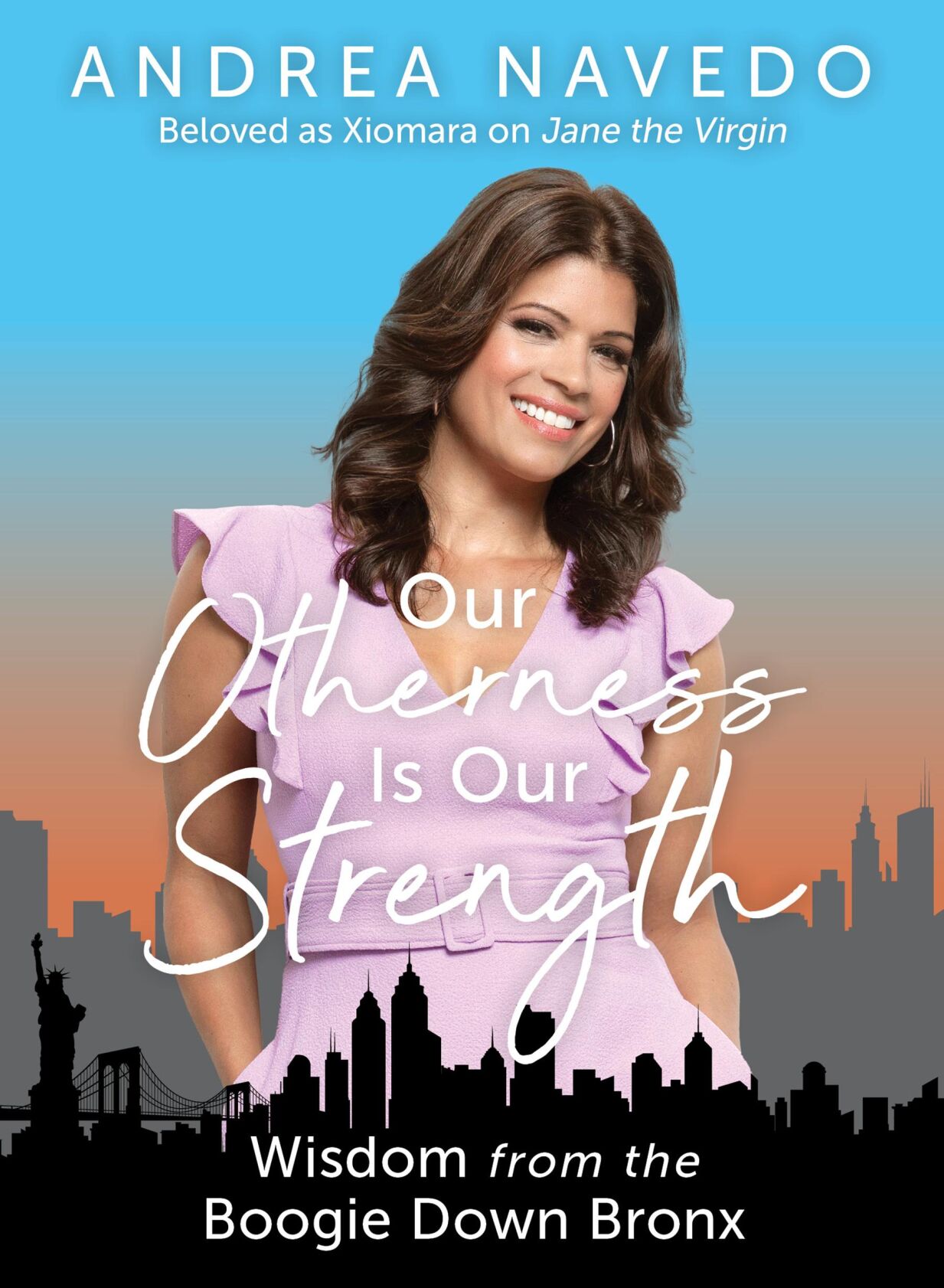
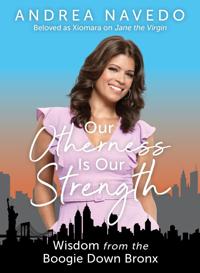
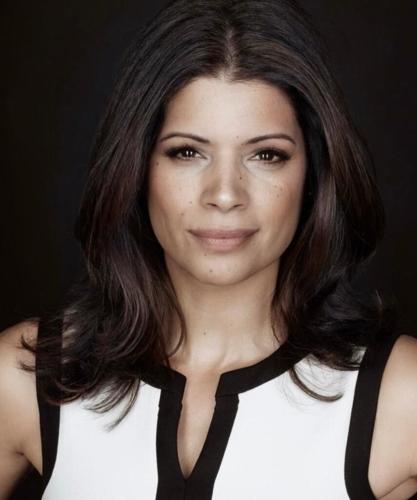
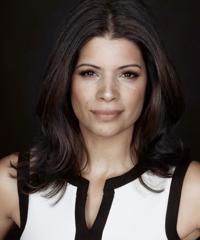

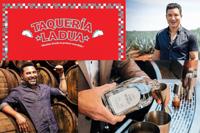

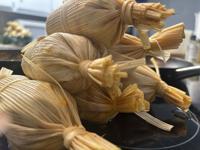

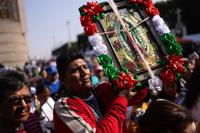


(0) comments
Welcome to the discussion.
Log In
Keep it Clean. Please avoid obscene, vulgar, lewd, racist or sexually-oriented language.
PLEASE TURN OFF YOUR CAPS LOCK.
Don't Threaten. Threats of harming another person will not be tolerated.
Be Truthful. Don't knowingly lie about anyone or anything.
Be Nice. No racism, sexism or any sort of -ism that is degrading to another person.
Be Proactive. Use the 'Report' link on each comment to let us know of abusive posts.
Share with Us. We'd love to hear eyewitness accounts, the history behind an article.